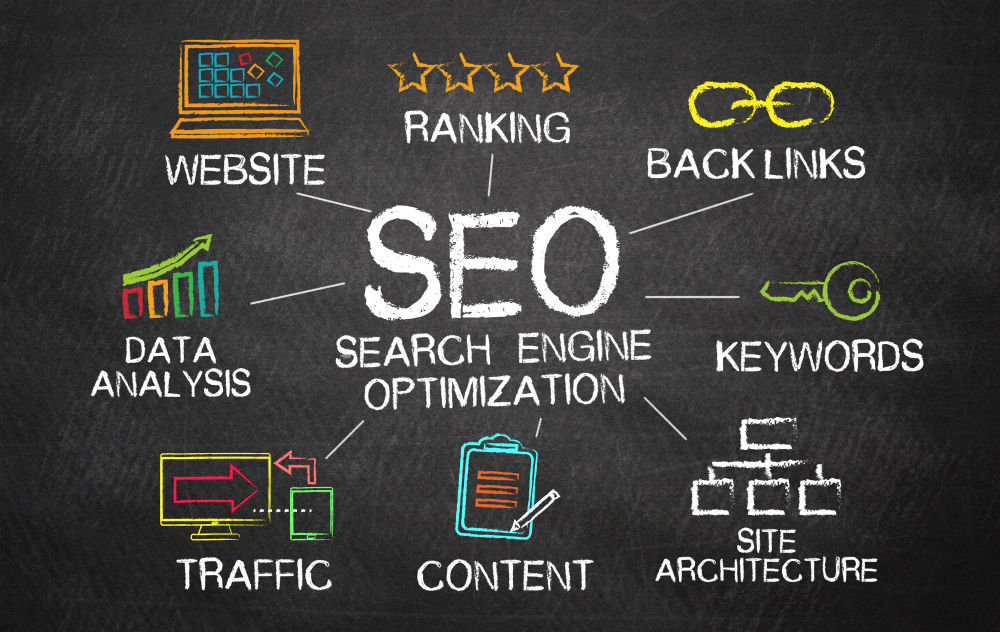The Internet has revolutionized how consumers seek out information on products and services, creating the need for a robust digital marketing portfolio for any business who hopes to compete online. While the importance of digital marketing is now universally acknowledged, one of the key cogs in the digital marketing machine is still often overlooked: SEO.
SEO is an acronym for Search Engine Optimization, and it encompasses a wide range of methods, tactics and techniques in an effort to increase rankings positions on search engine results pages. The higher a website’s position in Google, the greater its visibility, as far more users are likely to view and click on the first few results for any given search query. The overarching goal of SEO is to increase this visibility as much as possible to increase website traffic and, ultimately, conversions.
Search engines such as Google have highly sophisticated and complex algorithms that measure a website’s rankability based on over a hundred factors. These factors look at virtually every part of a website, from its design and code to content and user experience.
For any given search query, and especially higher-volume searches, many websites are competing at once to be in the first position on Google’s search engine results pages (SERPS). In fact, the entire first page of Google is highly-coveted, and it’s exceptionally challenging to achieve first-page rankings at all in highly competitive industries.
A competitive search engine optimization campaign is highly detailed and multi-faceted, often requiring multiple account managers to complete the necessary associated workload. There are entire agencies with dozens or more employees devoted solely to SEO in its many forms. It is best described as a rabbit hole, whereupon completion of broader, more obvious SEO tasks often reveals more that needs to be done on a specific level.
SEO affects only the organic search results in a search engine. Results listed with the word “Ad” next to their title, or some other indication of an advertisement, are paid search results and rely on a PPC campaign to operate. Paid ads are an enormous revenue source for Google, but are not required; essentially, you can rank in the first page of organic results in Google for free (although it might take years of work).
How Does SEO Work?
 Google crawls websites using its proprietary “GoogleBot”, which collects all the available data associated with a web page and adds it to Google’s index, a vast array of data that includes anything and everything currently viewable on Google’s SERPS (tens of trillions of websites and pages).
Google crawls websites using its proprietary “GoogleBot”, which collects all the available data associated with a web page and adds it to Google’s index, a vast array of data that includes anything and everything currently viewable on Google’s SERPS (tens of trillions of websites and pages).
When returning a search query result, Google’s algorithm considers all of the possible results within the Google index, and chooses the most appropriate and relevant answer available based on over a hundred search ranking factors. While many of these criteria are kept secret by Google, others are ubiquitously known throughout the SEO industry as being critical to success.
Content relevancy, user experience, website speed and functionality, and the expertise, authority and trustworthiness of a given website are all some of the broader search factors that must be taken into account. There is somewhat of a hierarchy to SEO, in that the most basic elements tend to be the most important and should be implemented first.
The first order of business is making sure that Google can crawl your website. This may require submitting URLs to Google’s Search Console to be indexed if they for some reason are not indexed automatically.
The next priority should lie in content, as providing highly engaging and relevant content is often considered the most important overall factor contributing to improved SEO rankings. Keyword placement within content and other areas of a website is also critical, as it is these keywords that are considered when matching your content with user search queries.
From there, SEO elements such as links, site speed and functionality, user interface and structured data should be addressed. While these are all important parts of SEO, their effectiveness relies on a solid foundation in content and keywords.
Google makes it clear that, by prioritizing web content to appeal to the user rather than the search engine, businesses are already performing SEO, whether they realize it or not. As Google’s algorithm continues to become more advanced, more abstract concepts will continue to add weight to rankability, making SEO a continually evolving industry that requires just as much intuition as it does analytical and technical skills.



